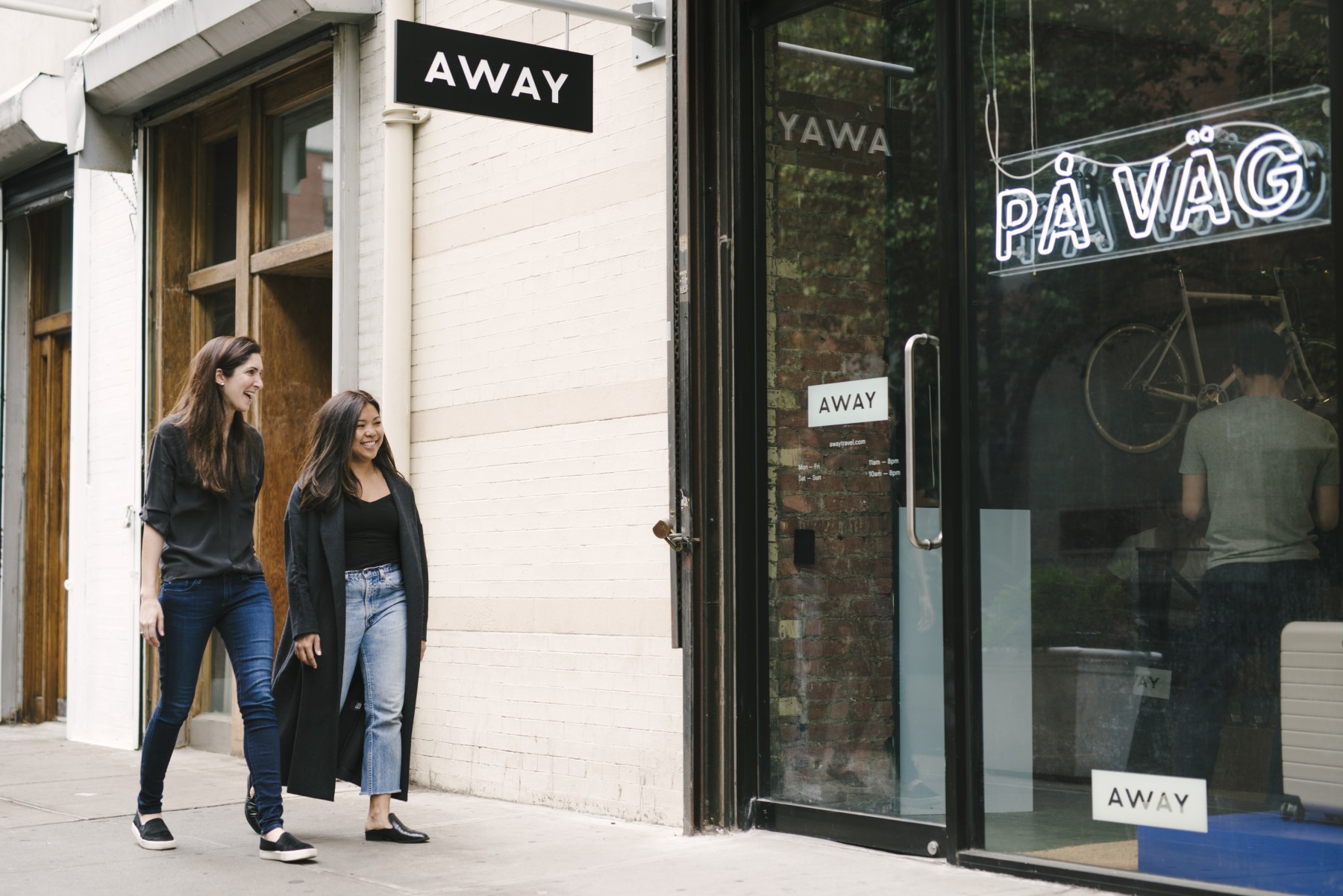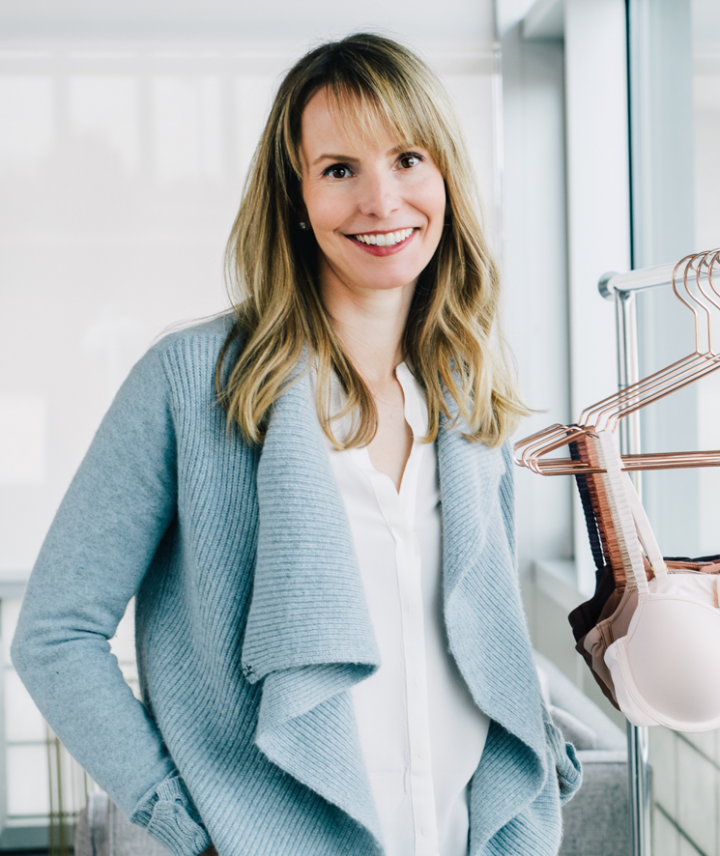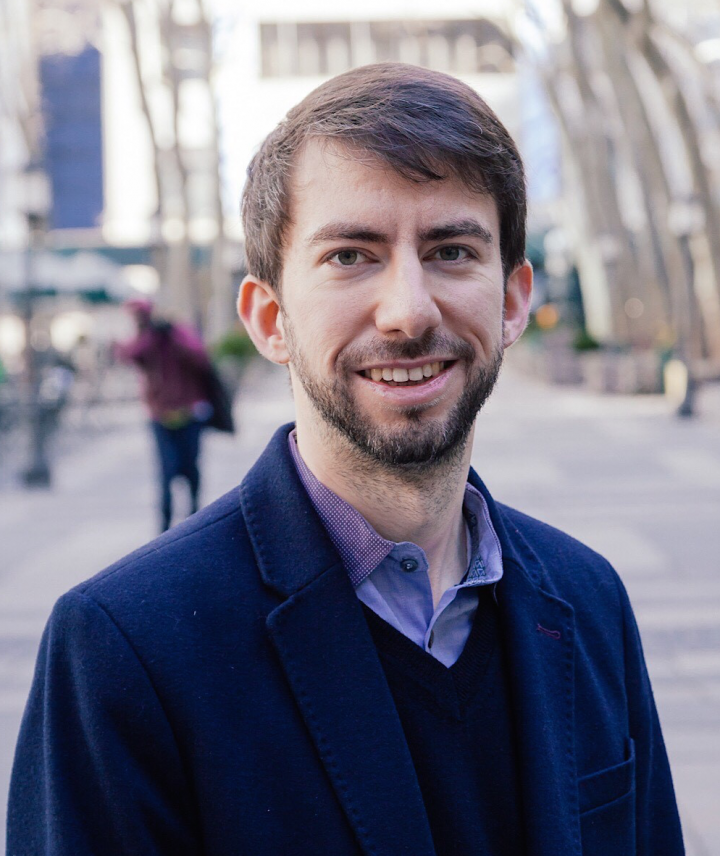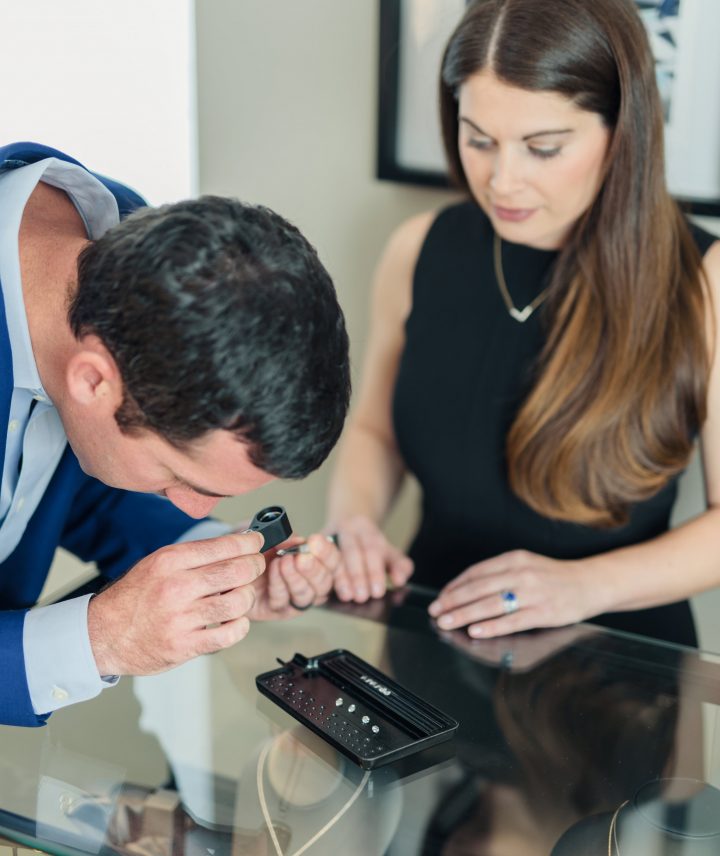Consider Away founders Stephanie Korey (left) and Jen Rubio the queen and queen of commerce. They met over vertically-integrated eyewear at Warby Parker (Korey ran their supply chain; Rubio, social media) before moving on to respective jobs at Casper and All Saints. And now with the first business of their own, they’re offering “first class, direct-to-consumer luggage at coach prices”—not dissimilar from the angle taken by their previous employers.
“But I wouldn’t call our business an iteration of another company’s model,” says Rubio. “We just happened to be in the right place at the right time… We worked for and with some of the greatest minds in e-commerce and are now separately participating in this larger, Internet-driven revolution.”
With price points set at $225, $275 and $295, there’s no question: Away’s luggage, which hit the Internet this year, is more affordable. Its hardshell exterior accommodates inset wheels—giving you extra room—and a row of three chargeable USB outlets means never having to say, “I’m sorry, my phone died.”
But is a direct-to-consumer model enough to differentiate their product from legacy competition like Tumi? And how did the pair decide this idea was the idea to pursue? Here’s what company’s founders had to say:





